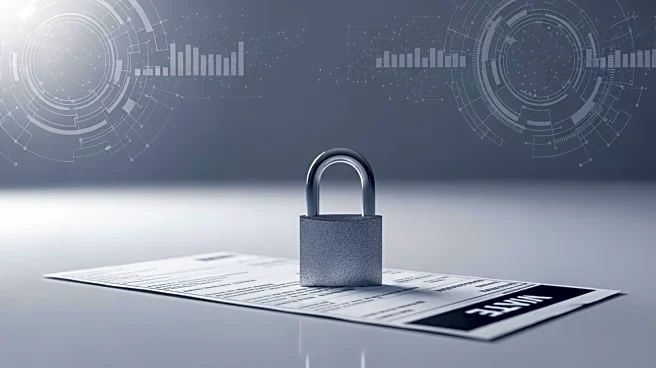What's Happening?
Utility companies are increasingly becoming targets for identity-related fraud, with the Federal Trade Commission's Consumer Sentinel Network reporting about 28,000 cases of stolen identities used to open
new utility accounts in 2024. Despite these figures, the true extent of the problem remains largely hidden due to the lack of legal requirements for utilities to report fraud incidents. Fraudsters exploit the limited identity verification processes in utilities compared to banks, allowing them to open accounts using stolen or synthetic identities. The delayed detection due to billing cycles and service protections further exacerbate the issue, making utilities attractive targets for fraud.
Why It's Important?
The rise in utility fraud has significant implications for both the companies and consumers. It not only leads to unpaid bills but also acts as a gateway for larger fraud schemes, affecting the financial sector. Utilities are urged to adopt stronger onboarding verification methods and collaborate across providers to track fraud trends. The absence of regulatory oversight and underreporting magnifies the problem, necessitating a proactive approach to protect operations and consumers. The broader impact includes potential financial losses and the erosion of trust in utility services.
What's Next?
Utilities are encouraged to implement layered security measures, including device fingerprinting and identity-link analysis, to detect anomalies at account opening. Monitoring payment patterns and auditing referral programs are also recommended to limit exploitation. Cross-provider data sharing is crucial to identify repeat offenders and track broader fraud trends. As fraud evolves, utilities must adapt quickly to safeguard their operations and consumers.
Beyond the Headlines
Utility fraud serves as a stepping stone for broader fraud schemes, impacting the financial sector. The use of synthetic identities in utilities can infiltrate banks, fintechs, and government programs, highlighting the need for comprehensive fraud detection strategies.











